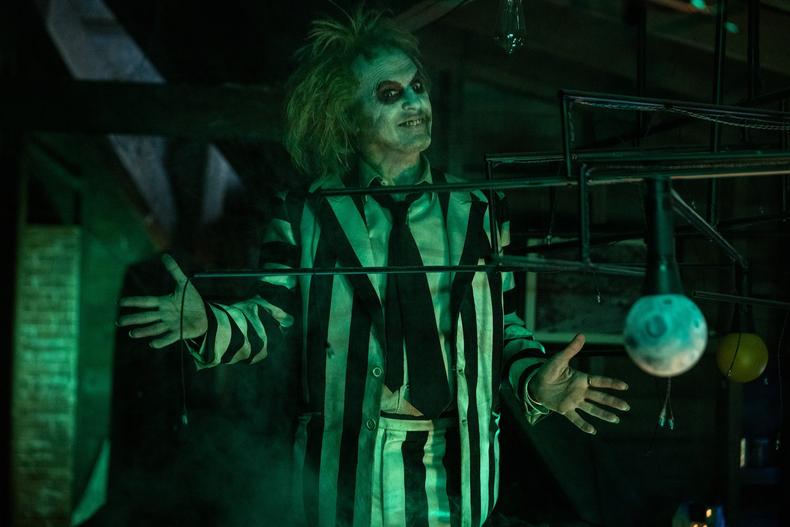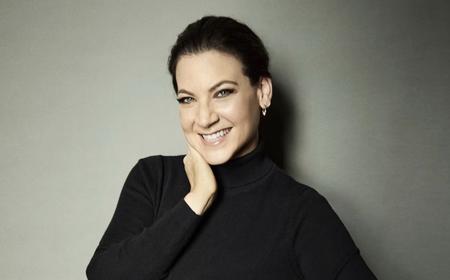
At this year’s Academy Awards, first-time winner Cord Jefferson made heads turn when he accepted the award for best adapted screenplay for “American Fiction,” his directorial debut that he’d struggled to get greenlit. His speech was part plea, part call-to-arms, imploring studio executives and other Hollywood gatekeepers to take more chances.
“I understand that this is a risk-averse industry. I get it. But $200 million movies are also a risk. It doesn’t always work out, but you take the risk anyway,” he said. “Instead of making one $200 million movie, try making 20 $10 million movies, or 50 $4 million movies.”
Not only was Jefferson’s math impeccable, but his invocation of democratic principles (“I want other people to experience that joy”) was unimpeachable; and his logic behind creating more opportunities for up-and-coming filmmakers (“The next Christopher Nolan’s out there”) was undeniable.
Still, I think he was only half right. My heart is with low-budget indie movies, but I’ve also got a soft spot for good blockbusters. As the creative types in the audience nodded and cheered and the money counters shook their heads, my own was spinning in both agreement and dissent.
RELATED: How Cord Jefferson Dropped His Ego to Direct ‘American Fiction’
For decades, the prevailing wisdom has been that small- and mid-budget movies tend not to be profitable. Better to swing for the fences with big-budget blockbusters that are likely to be money-makers, whether via brand awareness (remakes, franchises, spinoffs), a preexisting genre audience (action, horror), or bankable movie stars.
Studios need to do that, the reasoning goes, in order to reap the ancillary income that comes from international sales and streaming deals, as well as to align a big budget with ever-ballooning marketing expenses. Releasing a $5 million film with a $25 million marketing budget doesn’t make financial sense.
I think Jefferson’s cri de coeur resonated because it followed a series of upsets in the industry, from the pandemic to the SAG-AFTRA and WGA strikes. It also arrived in an era when indie film festivals like Sundance and South by Southwest are becoming less relevant in a universe dominated by social media. More than anything else, his speech came at a moment when a sea change caused by the rise of streaming has transformed Hollywood.
This is particularly salient due to the box office performance of last year’s “The Marvels,” the most recent Marvel Cinematic Universe movie; it made a paltry $84.5 million domestically. Recent headlines like the Ringer’s “How Hollywood’s Hit Formula Flopped—and What Could Come Next” suggest that the era of big-budget franchises could be coming to an end.
Ever since the release of the first MCU movie in 2008 (Jon Favreau’s “Iron Man,” which grossed $319 million domestically), the comic-book franchise has largely dominated the film world. Since then, Marvel releases have regularly netted $200 million and up in the U.S. The MCU reached its peak between 2015 and 2021, with massive domestic grosses for “Avengers: Age of Ultron” ($459 million), “Avengers: Infinity War” ($678 million), “Black Panther” ($700 million), “Spider-Man: No Way Home” ($814 million), and “Avengers: Endgame” ($858 million)—the second-highest-earning movie in history. By the end, we were all just little pieces in Marvel’s game.
But even with recent financial disappointments, the MCU isn’t going to disappear; predictions of the death of the franchise flick are premature. Consider that last year, 14 of the top 20 box office earners fit the category. Greta Gerwig’s “Barbie,” the big winner of 2023, isn’t yet part of a film franchise; but that doesn’t mean the model has been broken. Quite the opposite, in fact: It just means that we can likely look forward to a future full of “Barbie” movies.
This year looks to be no different, with upcoming franchise films and spinoffs including “Despicable Me 4,” “Beverly Hills Cop: Axel F,” “Joker: Folie à Deux,” “Deadpool & Wolverine,” “Transformers One,” and “Venom: The Last Dance.” Sure, some recent releases haven’t performed well (“Ghostbusters: Frozen Empire”), but others have (“Kung Fu Panda 4”).
When I look ahead toward this 2024 franchise slate, I actually rejoice! This could be the year of the quality blockbuster. We’ve already seen the success of Denis Villeneuve’s fantastic “Dune: Part Two,” and a third installment is on the way.
Other upcoming franchise movies also look promising: George Miller’s “Furiosa: A Mad Max Saga,” which follows up what I’d consider to be one of the best films of the past 10 years, “Mad Max: Fury Road”; Wes Ball’s “Kingdom of the Planet of the Apes,” part of what has so far been a spot-on franchise; Kelsey Mann’s “Inside Out 2,” which gets inside the head of the now-teenage protagonist (I’m there); Michael Sarnoski’s “A Quiet Place: Day One,” a prequel to two solid alien horror movies; “Beetlejuice Beetlejuice” (Tim Burton! Michael Keaton! Winona Ryder!); and “Gladiator 2” (Ridley Scott! Paul Mescal!). I’d argue that these are all movies worthy of their big budgets.

Credit: Parisa Taghizadeh
Which isn’t to say that Jefferson was wrong. His refreshing reiteration of a long-standing truth—one that needed to be said—is what made his words stand out.
But I’m wondering if Jefferson’s ire wasn’t aimed at schlocky franchise flicks as much as it was at “Oppenheimer,” which had an incredible amount of financial backing. Universal Pictures was happy to spend $25.7 million on TV ads alone, after having already invested $100 million into the production. Look at the results: Nolan’s biopic won the Oscar for best picture and has grossed close to $1 billion worldwide.
2024 Academy Award contenders like “American Fiction,” Celine Song’s “Past Lives,” Justine Triet’s “Anatomy of a Fall,” and Jonathan Glazer’s “Zone of Interest” were mostly drowned out by the string of “Oppenheimer” wins. This year’s ceremony broke a long streak of smaller-budget films grabbing the biggest awards. Many recent best picture winners have been offbeat indies: “Everything Everywhere All at Once” (2023), “CODA” (2022), “Nomadland” (2021), “Parasite” (2020), and “Moonlight” (2017). The last biggish drama to win was “Spotlight” in 2016.
Perhaps Jefferson fears “Oppenheimer” will usher in a new era of serious, big-budget films dominating the field; but one big win doesn’t make a trend. What’s more, a movie having lots of cash to work with isn’t a bad thing. When a major studio can back a drama about a scientist directed by a visionary like Nolan, that’s a win.
It’s not all doom and gloom for indie auteurs. A24 continues to be a latter-day Miramax for emerging artists (look to Rose Glass’ “Love Lies Bleeding” and Steve McQueen’s “Occupied City”). And thanks to streaming platforms, there’s a slew of outlets that are helping smaller-budget filmmakers realize their visions. Consider new indie streamer NoBudge’s backing of Tynan DeLong’s micro-budget feature debut, “Dad & Step-Dad.” Or look to the many cool new foreign films—Felipe Gálvez Haberle’s “The Settlers,” Lila Avilés’ “Totem,” and Thien An Pham’s “Inside the Yellow Cocoon Shell”—that are being distributed by indie studios.
And if you’re interested in Jefferson’s next effort, the “Succession” alum is returning to the small screen to write and executive produce the upcoming Prime Video limited series “Just Cause,” starring Scarlett Johansson; so I guess we’ll just have to wait for his next shot at small-budget movie glory. For now, I’ll be happy to watch his next prestige TV project.
This story originally appeared in the May 2 issue of Backstage Magazine.
 Inside the Mind (and Career) of Publicist-Turned-Manager-Turned-Producer Carrie Byalick
Inside the Mind (and Career) of Publicist-Turned-Manager-Turned-Producer Carrie Byalick 














